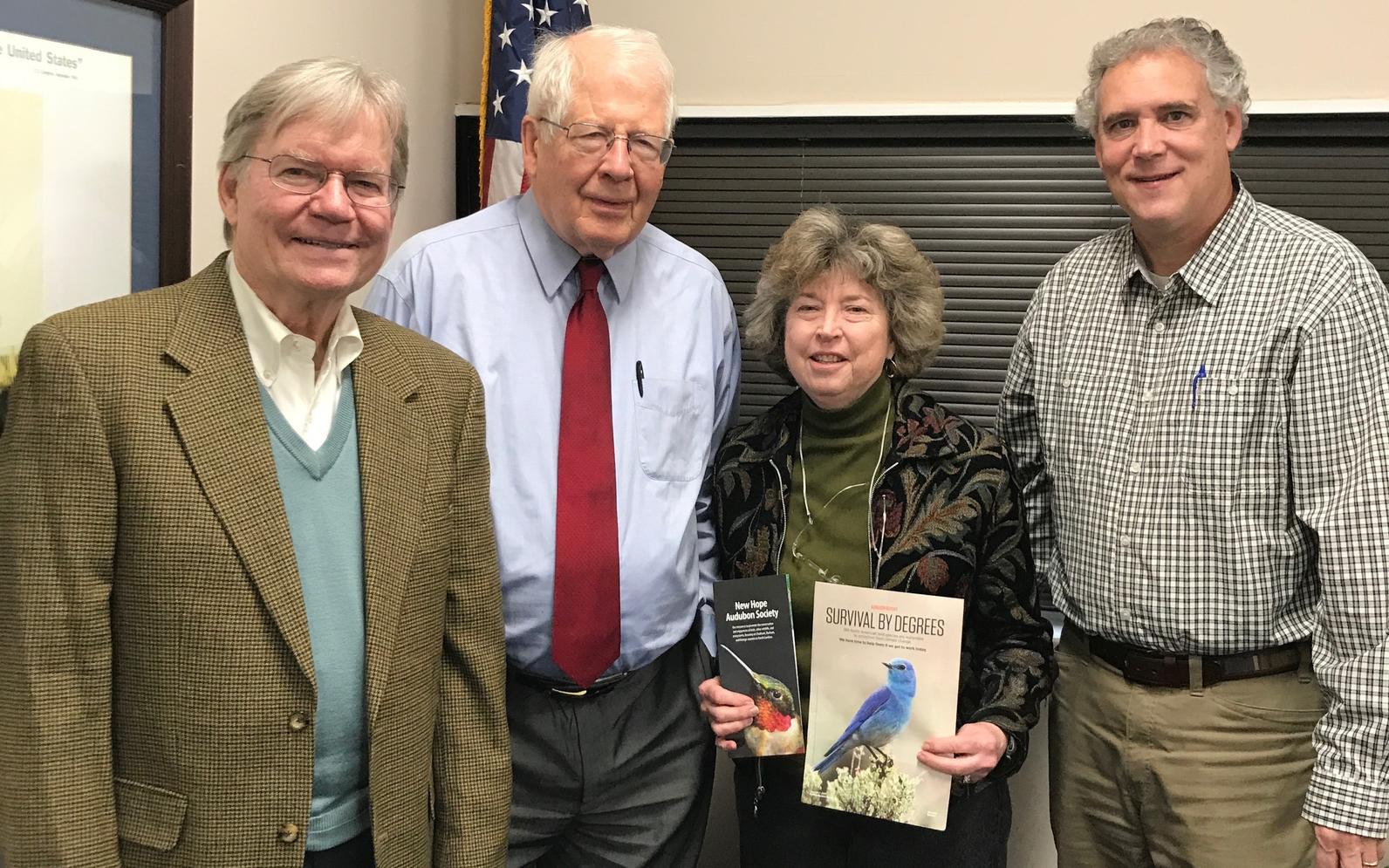
Washington, DC – “We can produce clean energy from wind and sun, but our challenge is storage technology that makes this emissions-free energy available around the clock,” said Renee Stone, Audubon’s Vice President for Climate. “Renewable energy sources are maturing fast and this legislation will help them grow as a share of the grid. Our investment in storage technology will speed up the energy revolution so that birds and people can breathe easier.”
The Better Energy Storage Technology (BEST) Act was introduced in the Senate by Senators Susan Collins (R-ME), Martin Heinrich (D-NM), Cory Gardner (R-CO), Tina Smith (D-MN), Chris Coons (D-DE), Martha McSally (R-AZ) and Angus King (I-ME), and today in the House by Representatives by Bill Foster (D-IL), Sean Casten (D-IL), Jaime Herrera Beutler (R-WA) and Anthony Gonzalez (R-OH). Among the many cosponsors are two from North Carolina: Congressmen Patrick McHenry (R-NC) and David Price (D-NC).
The bipartisan legislation would support an energy storage research and development program with the directive to set cost targets and strategic goals for storage innovation, and up to five large-scale storage demonstration projects. These grid-scale projects can provide real-world information about reliability, safety, costs, risks, challenges and other factors that can be applied by future developers, investors, regulators and others.
It is modeled after the Department of Energy’s SunShot Initiative, which successfully brought down the cost of solar energy by 75% in less than five years. This public investment will accelerate the field of energy storage technology to ultimately help suppliers deliver electricity as demand and supply fluctuate, a key step towards integrating renewable energy sources like wind and solar into the grid.
Audubon supports this clean energy legislation because climate change is the greatest threat that birds face. Among other things, it is shrinking range, diminishing food and water sources, increasing competition and introducing new predators.
Audubon’s 2019 Survival by Degrees climate report shows that two-thirds of bird species in North America are threatened with extinction due to rising temperatures and more extreme weather, including more than 200 species in North Carolina.
Audubon supports common-sense, bipartisan solutions that reduce carbon emissions at the speed and scale necessary to protect birds and the places they need. As part of this suite of solutions, Audubon supported the BEST Act in the last Congress, and hopes for passage of the legislation as a standalone bill or as part of a larger legislative package during this Congress.
Read more about Audubon’s work on climate mitigation and adaptation: https://www.audubon.org/conservation/climate-initiative
The National Audubon Society protects birds and the places they need, today and tomorrow. Audubon works throughout the Americas using, science, advocacy, education and on-the-ground conservation. State programs, nature centers, chapters, and partners give Audubon an unparalleled wingspan that reaches millions of people each year to inform, inspire, and unite diverse communities in conservation action. A nonprofit conservation organization since 1905, Audubon believes in a world in which people and wildlife thrive. Learn more how to help at www.audubon.org and follow us on Twitter and Instagram at @audubonsociety.



